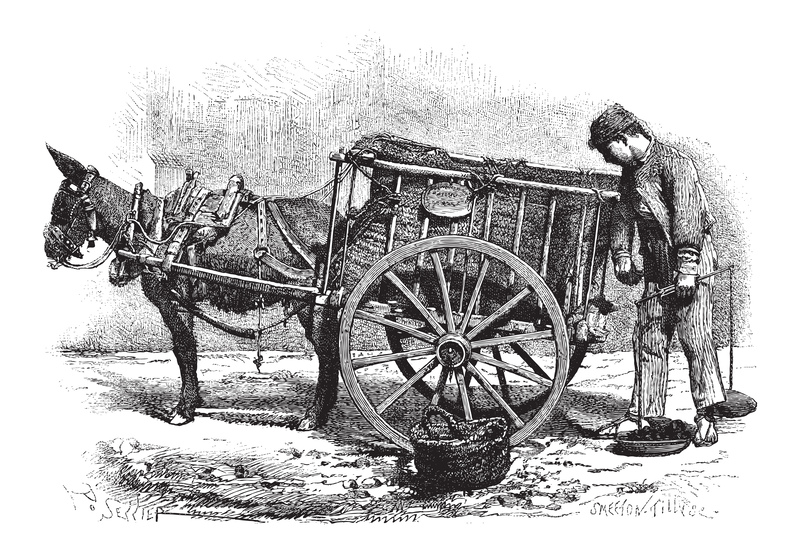Exploring Recycling Concepts with Your Kids: A Fun and Educational Guide
Recycling is an essential habit that not only protects our environment but also instills long-lasting eco-friendly values in the next generation. Introducing kids to recycling concepts can be both entertaining and enlightening. In this comprehensive guide, we'll explore creative ways to teach your kids about recycling, explain the importance of recycling, and inspire eco-conscious behaviors that can last a lifetime.
Why Should Kids Learn About Recycling?
Children are naturally curious and eager to help the planet. Learning recycling concepts at an early age encourages them to develop respect for nature, understand sustainability, and become responsible global citizens. Here are a few strong reasons to explore recycling education with your children:
- Environmental Awareness: Kids learn how their actions affect the earth and why reducing waste is crucial.
- Personal Responsibility: Recycling empowers children to make positive choices in daily life.
- Problem-Solving Skills: They discover creative ways to repurpose everyday items.
- Foundation for Green Habits: Early education fosters lifelong eco-friendly routines.

Explaining Recycling Concepts to Children
When teaching recycling to your kids, it's vital to keep concepts simple, relatable, and interactive. Use hands-on activities and everyday language to clarify how recycling works.
The Basics of Recycling: What, Why, and How?
-
What is Recycling?
Recycling means turning old or used materials into new products instead of throwing them away. This process helps to save resources and reduce pollution. -
Why Do We Recycle?
By recycling, we lessen the amount of trash in landfills, conserve raw materials, protect wildlife, and lower greenhouse gas emissions. -
How Does Recycling Work?
Recyclable items are collected, sorted, cleaned, and then processed into new materials that companies use to make fresh items.
Encourage your children to ask questions, and use visual aids like posters, videos, or simple drawings to explain how items move through the recycling process.
Important Recycling Vocabulary for Kids
- Reuse: Finding new ways to use an item instead of throwing it away.
- Reduce: Cutting down on the amount of waste we create.
- Compost: Turning food scraps or yard waste into soil.
- Landfill: The place where trash that can't be recycled is buried.
- Single-stream recycling: Where all recyclables are mixed together and sorted at the recycling center.
Making Recycling Fun: Eco-Friendly Activities for Kids
Kids learn best when they play. Here are some engaging recycling activities you can enjoy with your children at home or in educational settings:
1. Home Recycling Sorting Game
- Gather clean items like paper, plastic bottles, cans, and glass jars.
- Make different "bins" using containers labeled with each material (paper, plastic, glass, metal, trash).
- Challenge your kids to sort the items into the right bins as fast as they can.
This game helps children understand different types of materials and where each belongs in the recycling system.
2. Upcycling Craft Projects
- Transform recyclable materials into creative works of art or practical objects.
- Ideas include making flower pots from bottles, bird feeders from cartons, or robots from boxes and lids.
- Encourage your kids to invent their own upcycled creations!
3. Neighborhood Clean-Up Challenge
- Go for a walk with gloves and bags to pick up litter in your nearby park or street.
- Sort collected items and discuss which ones can be recycled or composted.
- Celebrate your child's efforts with a certificate or a fun snack afterwards!
4. DIY Home Composting
- Start a small compost pile or use a compost bin for kitchen food scraps.
- Teach your kids what goes into compost (fruit peels, veggie scraps, eggshells, coffee grounds) and what doesn't (meat, dairy, plastics).
- Watch how waste turns into soil for plants, making the recycling loop clear and tangible.
Simple Ways to Practice Recycling at Home
Building recycling habits with your kids is all about consistency and encouragement. Here's how you can turn your home into a recycling-friendly household:
- Set Up a Recycling Station: Label bins with images for paper, plastic, glass, metal, and trash. Make it easy for kids to participate.
- Lead by Example: Let your children see you recycling and reusing materials daily.
- Reduce Waste Together: Use reusable bags and containers, avoid single-use plastics, and shop in bulk when possible.
- Talk About Packaging: Discuss which items are easier to recycle and why buying less-packaged goods helps the environment.
- Praise and reward your child's efforts, no matter how small. Positive feedback reinforces good habits.
Exploring Local Recycling Programs
Introduce your children to your community's recycling systems by:
- Taking a field trip to your local recycling center or landfill.
- Inviting a recycling expert to visit your child's school or club.
- Participating in city-sponsored recycling events, such as electronics collections or hazardous waste drop-offs.
When kids see how the whole community is working together, they feel more connected and motivated to make a difference.
Common Questions Kids Ask About Recycling
Kids are full of questions, and exploring their curiosity helps deepen understanding. Here are some typical recycling questions and simple answers:
-
What happens to our recycling after it leaves our house?
It's taken to a plant where it's sorted, cleaned, and made into new products. -
Does recycling really help the earth?
Yes! Recycling saves space in landfills, conserves resources, and reduces pollution. -
Can everything be recycled?
No, not everything can be recycled. Items like food wrappers, certain plastics, and dirty containers usually go in the trash. -
Why do I need to wash my recycling?
Clean materials are easier to recycle and help prevent contamination at the recycling center.
Understanding What Can and Can't Be Recycled
Sometimes, the world of recycling seems confusing. To help your children become confident recyclers, teach them the general rules on recyclable and non-recyclable items.
- Commonly Recyclable Items: Cardboard, office paper, newspaper, aluminum cans, glass bottles, plastic containers with recycling symbols (#1, #2, etc.).
- Items rarely accepted: Food-soiled containers, styrofoam, plastic bags, electronics (unless specified), certain takeaway containers.
- What about special recycling? Batteries, light bulbs, electronics, and medications often require special drop-off locations.
Tip: Always check your city's recycling guidelines. Rules can vary by location!
Teaching Kids the Three R's: Reduce, Reuse, Recycle
The foundation of environmental stewardship is easy to remember: Reduce, reuse, recycle. Explain to your kids what each "R" means and how they can practice it every day.
- Reduce: Buy only what you need and avoid waste.
- Reuse: Find new purposes for items instead of discarding them.
- Recycle: Sort materials correctly so they can become new products.
You can make it fun by coming up with family challenges, like a "No Waste Week" or a creative upcycling contest.
Benefits of Family Recycling Projects
- Strengthen teamwork by working together on eco-friendly goals.
- Motivate positive conversations about waste, shopping, and sustainability.
- Help build community connections, especially when participating in local events.
- Develop a sense of pride and accomplishment as your family makes a tangible difference.
How to Measure Your Family's Impact
Involving kids in tracking results can make recycling more rewarding. Here's how to measure your progress:
- Weigh your recycling each week and celebrate improvements.
- Count the number of reusable bags, bottles, or containers your family has substituted for disposables.
- Create a reward chart to mark achieved milestones, like a month without using plastic bags.
Recommended Books and Resources for Kids
Expand your recycling education with these engaging resources:
- The Adventures of a Plastic Bottle: A Story About Recycling by Alison Inches
- Why Should I Recycle? by Jen Green
- Educational websites like National Geographic Kids or EPA's Recycling for Kids page
- Local library story times and environmental workshops

Key Takeaways: Making Recycling a Family Habit
- Start small - every effort counts and helps build momentum.
- Lead by example - kids imitate what they see at home and in their community.
- Keep it fun! Games, crafts, and projects keep kids eager to learn about recycling.
- Talk often about recycling concepts - everyday reminders reinforce good habits.
- Stay informed - recycling rules change, and learning together keeps your family eco-smart.
Conclusion
Exploring recycling concepts with your children sets them on a meaningful journey toward environmental stewardship. By making recycling education interactive and engaging at home, you're not only helping the planet but also empowering your kids with valuable knowledge and practical skills. Remember: every lesson, big or small, is a step closer to a greener future. Start your family's recycling adventure today!